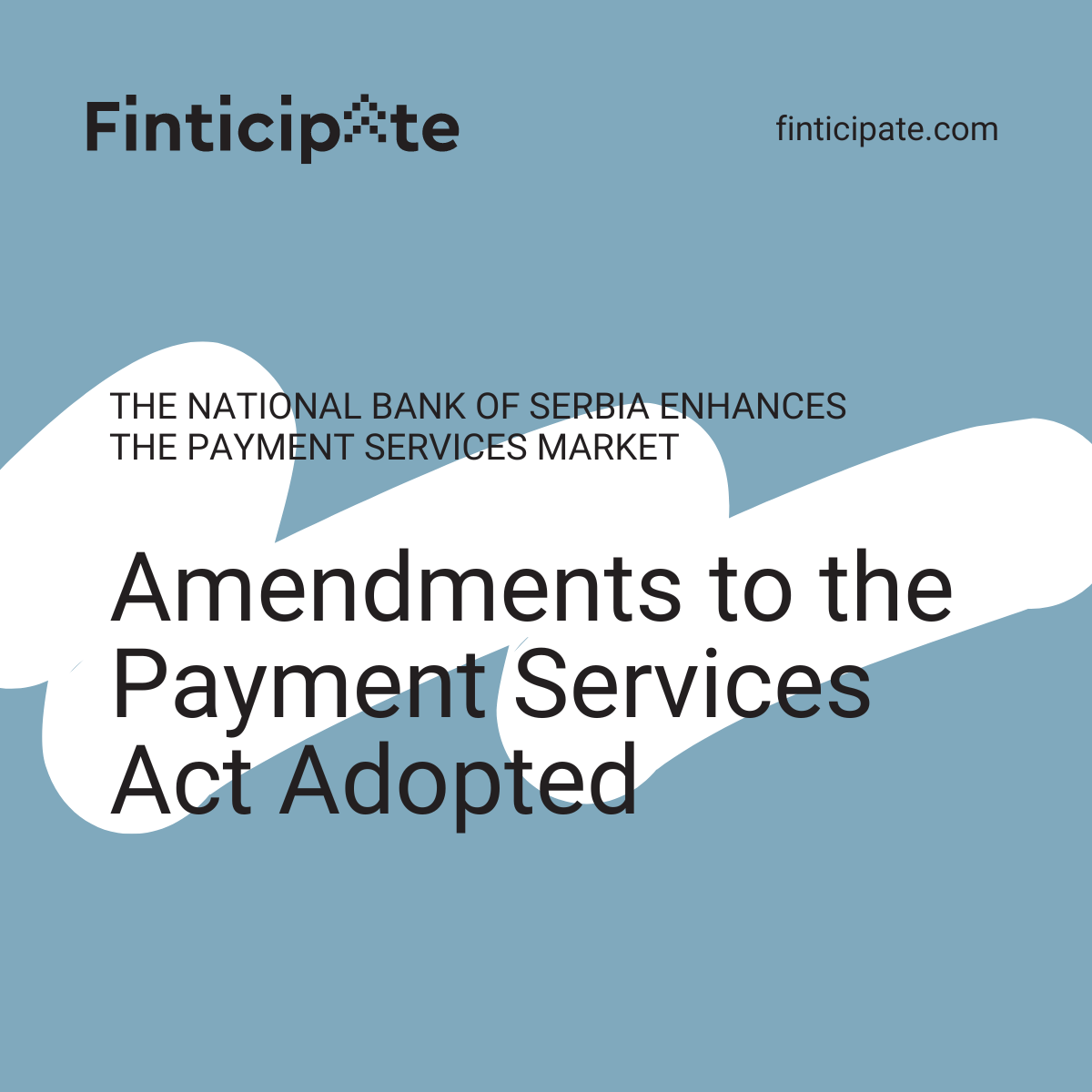
The National Bank of Serbia Enhances the Payment Services Market
Amendments to the Payment Services Act Adopted
The National Bank of Serbia Enhances the Payment Services Market – Amendments to the Payment Services Act Adopted
In June, the National Bank of Serbia (NBS) announced the preparation of Draft Amendments to the Payment Services Act, demonstrating its continued efforts to improve the payment services market and digitalize financial services in the Republic of Serbia. The law will come into effect on August 8th this year, with a deadline for implementation set for May 6th, 2025.
With these amendments, payment service users in Serbia can expect greater protection, a wider range of services, and lower costs. Concurrently, the market for service providers will have opportunities to develop new, innovative business models. This development is particularly promising for technology and other companies looking to enter the financial services market, as the regulation opens up new business opportunities in Serbia. Essentially, it creates new space for the growth of the fintech market.
Since 2012, the NBS has been working on improving payment infrastructure, positioning Serbia among the leaders in this field. In doing so, the NBS enables the Serbian market to keep pace with Europe and fosters innovation in the market.
What do the adopted amendments to the Payment Services Act entail?
The law introduces open banking, along with new payment initiation and account information services, further promoting innovation, competition, and transparency in the market. But what exactly do we know about the concept of “open banking”?
Open banking allows banks and other financial service providers to securely share their users’ data with third parties through application programming interfaces (APIs). The goal of open banking is to encourage innovation, improve competition, and create new services that will help users better manage their finances.
As highlighted in a video explanation on the NBS website, the new legal framework “to further enhance payment security, introduces the requirement for all payment service providers to comply with ‘strong customer authentication’,” thereby introducing additional security checks in the user identification process to protect against potential abuse.
How knowledgeable are fintech companies about the implementation of the open banking concept?
In the light of these regulatory changes, it is important to mention the institutions and organizations that have been working for years to help develop this market niche, not only in Serbia but also in the region. For instance, the International Financial Corporation (IFC), with its “Digital Financial Services and Integrated Finance in the Western Balkans” project led by Matthias Timm, provides advisory and educational support to the fintech sector in Western Balkan countries. By working on projects that help developing countries more easily adopt digital financial service models and implement the open banking concept, the IFC focuses on raising awareness and educating financial service users about the benefits it brings. Ultimately, these changes will enable end-users to access secure and innovative financial services.
At the recently concluded Finticipate forum, the only regional forum comprehensively addressing the fintech and traditional financial market, there was lively discussion on these topics, particularly the adoption of PSD2 regulation, open banking, and their potential impact on the Serbian and regional financial and fintech market.
Organizations actively working on market education and regulatory improvement in this segment include the World Bank, the Association of Serbian Banks, NALED, and EWPN. Their aim is to transfer knowledge and best practices from foreign markets to the Western Balkans region.
The Next Step – Regional Fintech Association
Considering the newly adopted regulations and the opening of the market for new financial service providers, the formation of a regional fintech association is becoming increasingly significant. This was discussed at the Finticipate forum by Nikola Mehandžić, an expert in digital finance from the IFC. The fintech companies’ association would focus on further directing regulatory changes and improving the business environment for the fintech sector. The forum emphasized the importance of all those wishing to provide financial services in innovative ways (payment platforms, crowd investing platforms, open banking platforms, cryptocurrency exchanges, Insurtech, and other fintech market participants) joining the association as soon as possible to have a stronger voice in shaping an efficient fintech market.
Finticipate will continue to provide a platform next year where leading experts and regulators will have the opportunity to meet, connect, and discuss current issues, as well as present practical solutions that make sense for our market.

